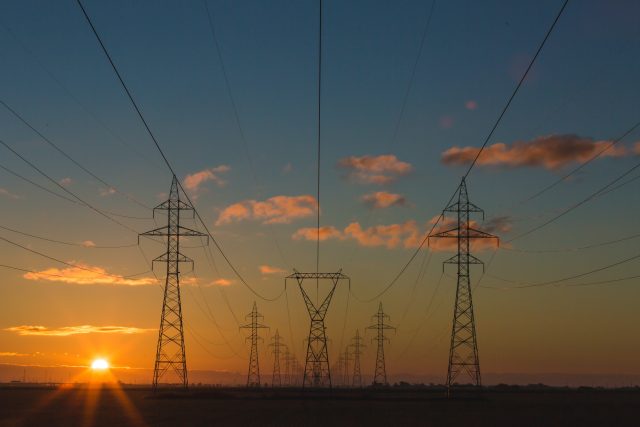
Last week, on the 14th of December, the Council of the EU and the European Parliament announced that they had reach a “provisional agreement” on one of the most complex yet crucial ongoing legislative files: the reform of the EU’s electricity market design. Although this provisional agreement is a very important milestone in the complex negotiations that have taken place over the last 8 months to push this reform through, there is one last hurdle that lies ahead, as the provisional agreement will now have to be formally ratified by the Council and the Parliament before the reform can come into effect.
The proposed reform the EU’s electricity market design was introduced by the European Commission 8 months ago, in March 2023, in the context of the energy crisis and soaring electricity bills exacerbated by the Russian invasion of Ukraine.
Prominent Member States like Spain and France also advocated for an overhaul of the design of the electricity market.
The European Commission’s reform proposal consisted of two pieces of legislation: the Proposal for a Regulation amending Regulations (EU) 2019/943 and (EU) 2019/942 as well as Directives (EU) 2018/2001 and (EU) 2019/944 to improve the Union’s electricity market design.
The other is the Proposal for a Regulation amending Regulations (EU) No 1227/2011 and (EU) 2019/942 to improve the Union’s protection against market manipulation in the wholesale energy market.
The goal of this package is to “accelerate a surge in renewables and the phase-out of gas, make consumer bills less dependent on volatile fossil fuel prices, better protect consumers from future price spikes and potential market manipulation, and make the EU’s industry clean and more competitive”.
In this regard, among the provisions of the Commission’s proposal, we could highlight the Commission’s proposal to facilitate the deployment of more stable long-term contracts such as Power Purchase Agreements (PPAs), through which companies establish their own direct supplies of energy and thereby can profit from more stable prices of renewable and non-fossil power production.
Its aims to “make electricity bills less dependent on fossil fuel prices by creating a buffer between short-term markets and the electricity bills paid by consumers”.
Tthe Commission proposed that two-way Contracts for Difference (CfDs) are used for public support for new investments in infra-marginal and must-run renewable and non-fossil electricity generation to provide power producers with revenue stability and to shield industry from price volatility.
Under CfDs, if electricity market prices are below the fixed “strike price”, the generator receives the difference, whereas if the market price is above the strike price, the generator pays back the difference, to be redistributed to consumers by the State.
The Commission also proposed measures to “protect and empower consumers”, such as giving consumers a “wider choice of contracts and clearer information before signing contracts, so that they have the option to lock in secure, long-term prices to avoid excessive risks and volatility”.
The reform proposal includes provisions to accelerate the deployment of renewables and the phase out of gas by facilitating further the integration of renewables in the electricity system and improving conditions for the use of flexibility solutions such as demand response, storage and other weather-independent renewable and low carbon sources.
The use of CfDs, however, has been the subject of protracted negotiations between the pro-nuclear camp, led by France, and anti-nuclear camp, led by Germany.
Since the reform proposal was presented, France had lobbied to be allowed to employ CfDs to finance the renewal of its existing nuclear fleet, but which Germany and the anti-nuclear camp had opposed, in the case of Germany because of concerns that this would effectively grant French companies unfair state aid and a competitive advantage.
Another thorny issue during the negotiations, which was finally included in the provisional agreement, was an “exceptional derogation” from the application of the CO2 emission limit for already authorised capacity mechanisms, which Poland had demanded to be able to deviate from EU rules and activate its existing peak coal power plants in case of an energy crisis, bearing in mind their dependence on fossil fuels for energy.
EU leaders from the three main institutions welcomed the agreement. Maroš Šefčovič, the Executive Vice-President for European Green deal, Interinstitutional Relations and Foresight in the European Commission, highlighted that “the reform of electricity market will facilitate the much-needed integration of renewables into our energy system … allow our industries to benefit from more stable and predictable energy prices, [and] will help our citizens … to cope with energy prices”.
Teresa Ribera, the Spanish Minister for the Ecological Transition who has been spearheading the negotiations during the Spanish Presidency of the EU, stated that the deal “is great news, as it will help us reduce even more the EU’s dependence on Russian gas and boost fossil-free energy to cut greenhouse gas emissions”, as well as “stabilise long-term markets, speed up the deployment of renewable and fossil-free energy sources, offer more affordable electricity to the EU’s citizens and enhance industrial competitiveness”.
Finally, Nicolás González Casares (S&D), Spanish MEP and rapporteur for the legislative file in the Parliament, has stated that “Europe will have a socially just electricity market that will better protect citizens, especially the most vulnerable, with measures to ensure affordable prices for citizens and businesses, and accelerate the energy transition.”



 Subscribe
Subscribe